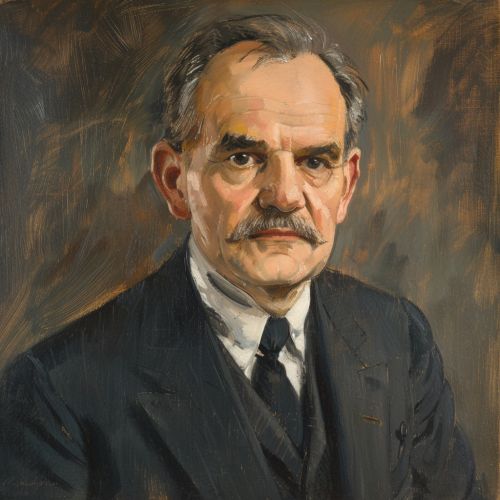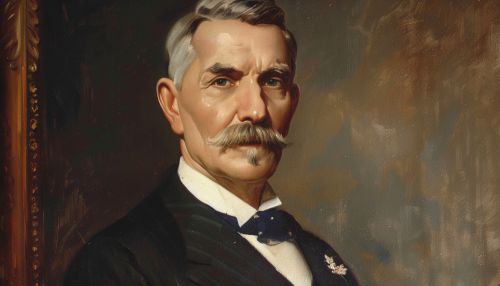Bolesław Prus: Difference between revisions
(Created page with "== Early Life and Education == Bolesław Prus, born Aleksander Głowacki, was a prominent Polish writer and journalist. He was born on August 20, 1847, in Hrubieszów, a small town in the Lublin region of Poland. His early life was marked by personal tragedies; his father died when he was only three years old, and his mother passed away when he was nine. These events led to his upbringing by relatives, which significantly influenced his later works. Prus attended vario...") |
No edit summary |
||
| (One intermediate revision by the same user not shown) | |||
| Line 17: | Line 17: | ||
Another significant novel by Prus is "Pharaoh" (Faraon), published in 1897. This historical novel is set in ancient Egypt and examines the complexities of power and governance. It is praised for its meticulous research and vivid descriptions, making it a classic of historical fiction. | Another significant novel by Prus is "Pharaoh" (Faraon), published in 1897. This historical novel is set in ancient Egypt and examines the complexities of power and governance. It is praised for its meticulous research and vivid descriptions, making it a classic of historical fiction. | ||
[[Image:Detail-79677.jpg|thumb|center|Portrait of Bolesław Prus, a prominent Polish writer, in a formal suit.|class=only_on_mobile]] | |||
[[Image:Detail-79678.jpg|thumb|center|Portrait of Bolesław Prus, a prominent Polish writer, in a formal suit.|class=only_on_desktop]] | |||
== Journalism and Social Commentary == | == Journalism and Social Commentary == | ||
Latest revision as of 15:54, 19 May 2024
Early Life and Education
Bolesław Prus, born Aleksander Głowacki, was a prominent Polish writer and journalist. He was born on August 20, 1847, in Hrubieszów, a small town in the Lublin region of Poland. His early life was marked by personal tragedies; his father died when he was only three years old, and his mother passed away when he was nine. These events led to his upbringing by relatives, which significantly influenced his later works.
Prus attended various schools, including the Lublin Gymnasium and the Warsaw Institute of Technology. His education was disrupted by his participation in the January Uprising of 1863, a Polish insurrection against the Russian Empire. He was wounded and captured during the conflict, which left a lasting impact on his health and worldview.
Literary Career
Early Works
Prus began his literary career in the 1870s, initially writing short stories and feuilletons for various newspapers. His early works often focused on social issues, reflecting his keen interest in the lives of ordinary people. One of his first notable stories was "The Outpost" (Placówka), which depicted the struggles of a peasant family against the encroachment of German settlers.
Major Novels
Prus is best known for his novels, which are considered masterpieces of Polish literature. His most famous work, "The Doll" (Lalka), published in 1890, is a detailed portrayal of Warsaw society in the late 19th century. The novel explores themes of love, ambition, and social change through the life of its protagonist, Stanisław Wokulski.
Another significant novel by Prus is "Pharaoh" (Faraon), published in 1897. This historical novel is set in ancient Egypt and examines the complexities of power and governance. It is praised for its meticulous research and vivid descriptions, making it a classic of historical fiction.


Journalism and Social Commentary
Prus was also a prolific journalist, contributing to various newspapers and magazines throughout his career. He wrote under several pseudonyms, including "Bolesław Prus," which became his most recognized pen name. His journalistic work often addressed pressing social issues, such as poverty, education, and women's rights.
Prus's columns were known for their insightful analysis and advocacy for social reform. He was particularly concerned with the plight of the working class and the need for educational improvements. His writings played a significant role in shaping public opinion and influencing social policies in Poland.
Philosophical and Scientific Interests
In addition to his literary and journalistic pursuits, Prus had a deep interest in philosophy and science. He was influenced by positivism, a philosophical system that emphasizes empirical evidence and scientific methods. This influence is evident in his works, which often incorporate scientific concepts and rationalist perspectives.
Prus was also fascinated by psychology and sociology, fields that were emerging during his lifetime. He explored these subjects in his writings, using them to analyze human behavior and social structures. His novel "The Doll" is particularly noted for its psychological depth and sociological insights.
Legacy and Influence
Bolesław Prus is regarded as one of the greatest Polish writers of the 19th century. His works have been translated into numerous languages and continue to be studied and admired worldwide. Prus's ability to combine literary artistry with social critique has made him a lasting figure in both Polish and global literature.
His influence extends beyond literature; Prus's ideas on social reform and education have left a lasting impact on Polish society. He is remembered not only for his literary achievements but also for his contributions to social thought and public discourse.
